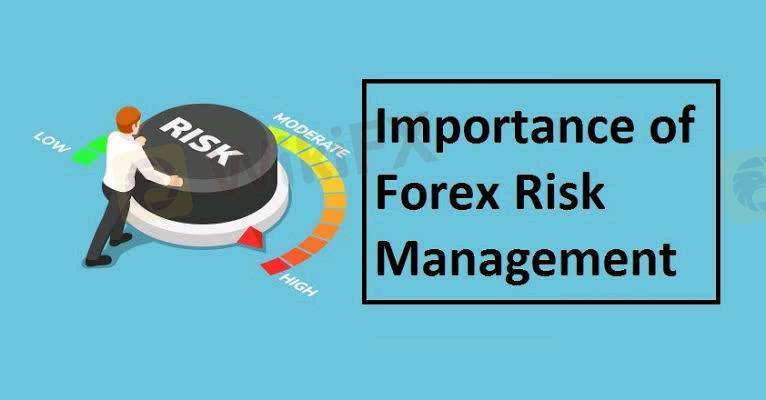
2025-02-18 00:28
IndustryImportance of risk management in Forex trading.
#forexrisktip
Risk management is absolutely crucial in Forex trading. Here's why:
* Volatility: The Forex market is highly volatile. Currencies can fluctuate rapidly due to economic news, political events, and even speculation. Without proper risk management, a sudden swing can lead to significant losses.
* Leverage: Forex trading often involves leverage, which can magnify both profits and losses. While leverage can increase potential gains, it also increases the risk of substantial losses if the market moves against your position.
* Capital Preservation: The primary goal of risk management is to protect your trading capital. By implementing strategies like stop-loss orders and position sizing, you can limit potential losses and ensure you can continue trading.
* Emotional Control: Fear and greed can lead to impulsive decisions. A solid risk management plan helps you stick to your strategy and avoid emotional trading, which often results in losses.
* Long-Term Success: Consistent profitability in Forex trading requires a long-term perspective. Risk management helps you survive market fluctuations and stay in the game long enough to achieve your financial goals.
Key Risk Management Techniques:
* Stop-loss orders: These orders automatically close your position when the price reaches a certain level, limiting your potential losses.
* Position sizing: Determining the appropriate amount of capital to risk on each trade based on your risk tolerance.
* Diversification: Spreading your capital across different currency pairs to reduce the impact of a single trade going wrong.
* Risk-reward ratio: Evaluating the potential profit of a trade against the potential loss to ensure the risk is justified.
* Continuous learning: Staying updated on market conditions and refining your risk management strategies.
Remember, no strategy can eliminate all risk in Forex trading. However, by implementing a comprehensive risk management plan, you can significantly reduce your exposure and increase your chances of success.
Like 0
FX3592862164
Trader
Hot content
Industry
Event-A comment a day,Keep rewards worthy up to$27
Industry
Nigeria Event Giveaway-Win₦5000 Mobilephone Credit
Industry
Nigeria Event Giveaway-Win ₦2500 MobilePhoneCredit
Industry
South Africa Event-Come&Win 240ZAR Phone Credit
Industry
Nigeria Event-Discuss Forex&Win2500NGN PhoneCredit
Industry
[Nigeria Event]Discuss&win 2500 Naira Phone Credit
Forum category

Platform

Exhibition

Agent

Recruitment

EA

Industry

Market

Index
Importance of risk management in Forex trading.
 India | 2025-02-18 00:28
India | 2025-02-18 00:28#forexrisktip
Risk management is absolutely crucial in Forex trading. Here's why:
* Volatility: The Forex market is highly volatile. Currencies can fluctuate rapidly due to economic news, political events, and even speculation. Without proper risk management, a sudden swing can lead to significant losses.
* Leverage: Forex trading often involves leverage, which can magnify both profits and losses. While leverage can increase potential gains, it also increases the risk of substantial losses if the market moves against your position.
* Capital Preservation: The primary goal of risk management is to protect your trading capital. By implementing strategies like stop-loss orders and position sizing, you can limit potential losses and ensure you can continue trading.
* Emotional Control: Fear and greed can lead to impulsive decisions. A solid risk management plan helps you stick to your strategy and avoid emotional trading, which often results in losses.
* Long-Term Success: Consistent profitability in Forex trading requires a long-term perspective. Risk management helps you survive market fluctuations and stay in the game long enough to achieve your financial goals.
Key Risk Management Techniques:
* Stop-loss orders: These orders automatically close your position when the price reaches a certain level, limiting your potential losses.
* Position sizing: Determining the appropriate amount of capital to risk on each trade based on your risk tolerance.
* Diversification: Spreading your capital across different currency pairs to reduce the impact of a single trade going wrong.
* Risk-reward ratio: Evaluating the potential profit of a trade against the potential loss to ensure the risk is justified.
* Continuous learning: Staying updated on market conditions and refining your risk management strategies.
Remember, no strategy can eliminate all risk in Forex trading. However, by implementing a comprehensive risk management plan, you can significantly reduce your exposure and increase your chances of success.
Like 0
I want to comment, too
Submit
0Comments

There is no comment yet. Make the first one.

Submit
There is no comment yet. Make the first one.